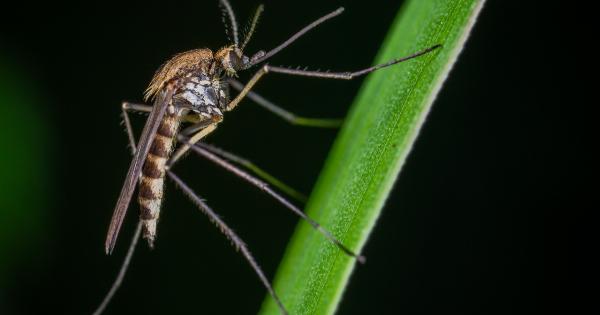Mosquitoes are one of the most annoying insects in the world. Not only do they cause itchy, red bites, but they are also carriers of many diseases such as Dengue, Malaria, and Zika.
The good news is that there are plants that can help repel mosquitoes naturally. In this article, we will discuss ten plants that can help keep mosquitoes away.
1. Citronella
Citronella is one of the most common plants used to repel mosquitoes. It contains natural oils that act as a mosquito repellent. You can plant citronella in your garden, use it to make candles, or even apply the oil directly to your skin.
Citronella works by masking the human scent that attracts mosquitoes.
2. Peppermint
Peppermint is a natural insect repellent. It emits a strong scent that mosquitoes find unpleasant. You can plant peppermint in your garden, use it to make candles, or even crush the leaves and rub them on your skin.
Peppermint is also useful for repelling other insects such as ants and ticks.
3. Lavender
Lavender has a sweet fragrance that is appealing to humans but not to mosquitoes. You can plant lavender in your garden or use it to make scented candles.
Lavender is also known for its calming properties, making it an excellent plant to have in your bedroom.
4. Basil
Basil is a natural mosquito repellent that can be easily grown in your garden. The strong scent of basil masks the scent of humans, making it difficult for mosquitoes to locate their prey.
You can also crush basil leaves and rub them on your skin to help keep mosquitoes away.
5. Marigold
Marigold is another plant that can help repel mosquitoes. The strong scent of marigold masks the human scent, making it difficult for mosquitoes to locate their prey.
You can plant marigold in your garden or place them in pots around your patio to help keep mosquitoes away.
6. Lemon Balm
Lemon Balm is a natural mosquito repellent that emits a strong citrus scent that mosquitoes find unappealing. Lemon balm is also known for its calming properties, making it an excellent plant to have in your bedroom.
You can plant lemon balm in your garden or use it to make tea.
7. Catnip
Most cats love catnip, but did you know that catnip is also a natural mosquito repellent? The essential oil in catnip, nepetalactone, is more effective at repelling mosquitoes than DEET, the chemical found in most commercial insect repellents.
You can plant catnip in your garden or crush the leaves and rub them on your skin.
8. Rosemary
Rosemary is a natural mosquito repellent that can be grown in your garden or in pots on your patio. The strong scent of rosemary masks the human scent, making it difficult for mosquitoes to locate their prey.
Rosemary is also a versatile herb that can be used in cooking.
9. Geranium
Geraniums contain natural oils that repel mosquitoes. The strong scent of geraniums masks the human scent, making it difficult for mosquitoes to locate their prey.
Geraniums are also known for their beautiful flowers and are a popular addition to gardens and patios.
10. Eucalyptus
Eucalyptus is a natural insect repellent that can help repel mosquitoes. The essential oil in eucalyptus contains compounds that are toxic to mosquitoes, making it an effective repellent.
You can plant eucalyptus in your garden or use the essential oil to make candles or spray.
Conclusion
There are many plants that can help repel mosquitoes naturally. Using these plants is a safe and effective way to keep mosquitoes away without using harmful chemicals.
Whether you plant them in your garden, use them to make candles, or even apply them directly to your skin, these plants are sure to help make your outdoor experience more enjoyable.




























